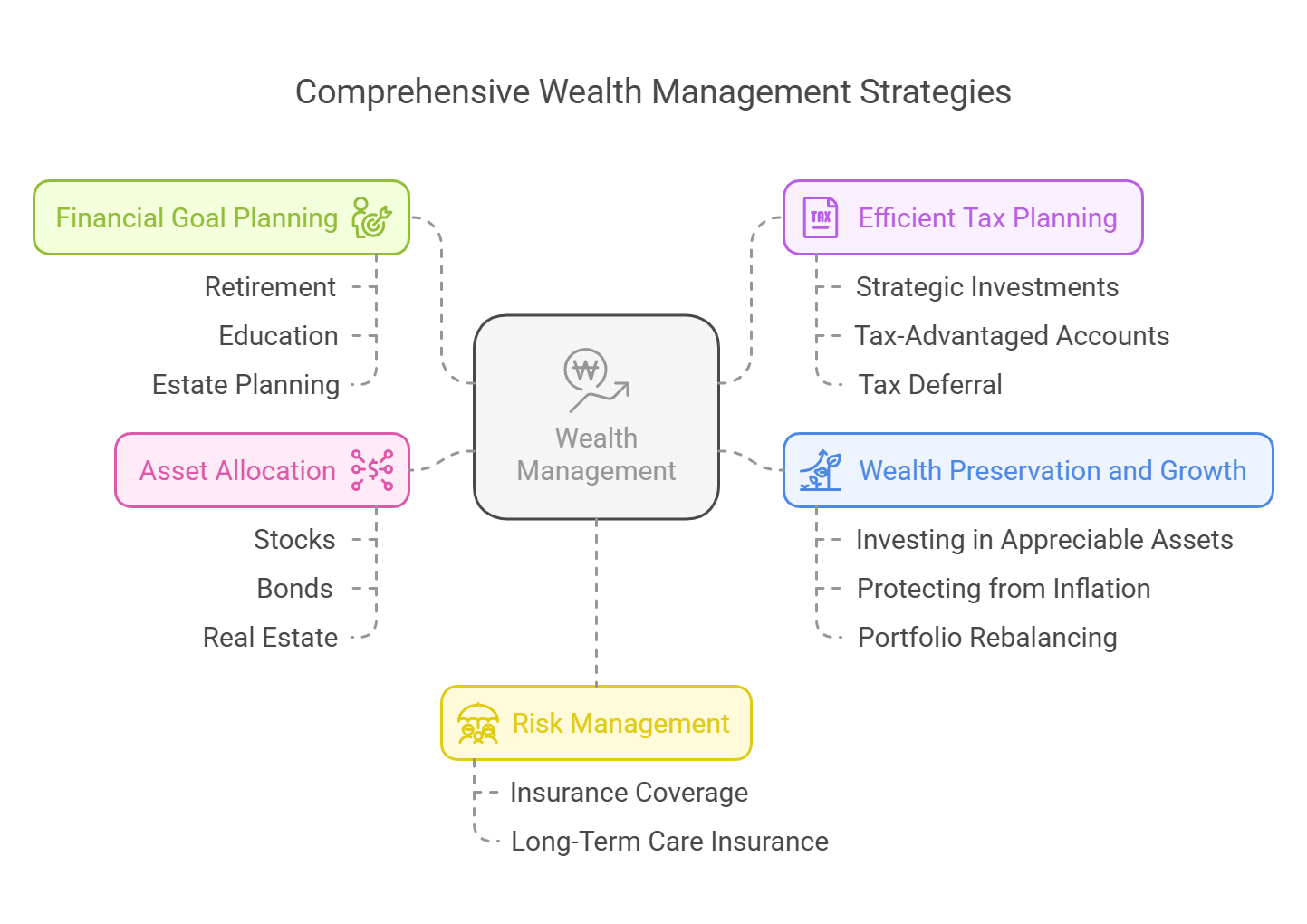Need for Wealth Management
Why It's Important
Wealth management is crucial in today's complex financial landscape.

-
Financial Goal Planning:
-
Explanation: Wealth management helps individuals articulate and achieve specific financial objectives throughout their lives. These aren't just vague aspirations; they are concrete targets with defined timelines.
-
Examples:
- Retirement: Determining how much to save, where to invest, and when to retire comfortably.
- Education: Planning for the future cost of children's education, considering inflation and potential scholarships.
- Estate planning: Devising a strategy for the efficient transfer of assets to legal heirs, minimizing taxes, and ensuring the client's wishes are honored.
-
Benefits: Provides clarity, focus, and a roadmap for achieving long-term financial security. Without a plan, goals are less likely to be achieved.
-
-
Efficient Tax Planning:
-
Explanation: The tax system can significantly erode wealth if not managed effectively. Wealth management incorporates strategies to minimize tax liability legally and ethically through:
- Strategic investment choices.
- Utilizing tax-advantaged accounts.
- Deferring or eliminating taxes on investment gains.
-
Benefits: Maximizes after-tax returns and allows individuals to retain more of their hard-earned money. It also facilitates the smooth transfer of wealth to one’s legal heirs with minimal estate tax payments.
-
-
Risk Management:
-
Explanation: Life is full of unforeseen events that can significantly impact finances. Wealth management includes identifying and mitigating potential financial risks through insurance and other risk management techniques.
-
Examples:
- Adequate insurance coverage (life, health, disability, property).
- Long-term care insurance to mitigate potential care expenses in later years.
-
Benefits: Provides a safety net against unexpected events, protecting wealth and ensuring financial stability in times of crisis.
-
-
Wealth Preservation and Growth:
-
Explanation: It's not enough to simply accumulate wealth; it must be preserved and grown over time. Wealth management focuses on:
- Investing in assets with the potential for long-term appreciation.
- Protecting assets from inflation and other economic risks.
- Rebalancing portfolios to maintain an appropriate risk profile.
-
Benefits: Ensures that wealth not only endures but also grows, allowing individuals to achieve their long-term financial aspirations and leave a lasting legacy.
-
-
Asset Allocation:
-
Explanation: Asset allocation is the cornerstone of effective wealth management. It involves diversifying investments across various asset classes (stocks, bonds, real estate, etc.) to optimize returns while managing risk.
-
Benefits: Reduces portfolio volatility, improves risk-adjusted returns, and helps individuals achieve their financial goals more effectively.
-
In Summary:
Wealth management provides a structured and personalized approach to financial success, enabling individuals to:
- Define and achieve their financial goals
- Minimize taxes
- Protect against risks
- Preserve and grow wealth
- Optimize asset allocation
Without wealth management, individuals are more likely to make impulsive decisions, pay unnecessary taxes, and face greater financial uncertainty. It is therefore an essential service for anyone seeking to achieve long-term financial security and success.

No Comments